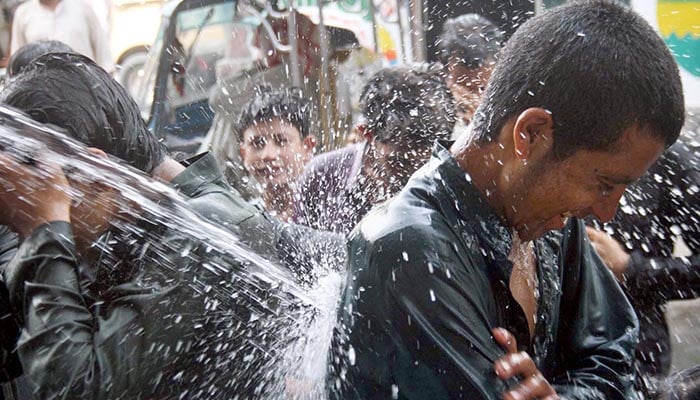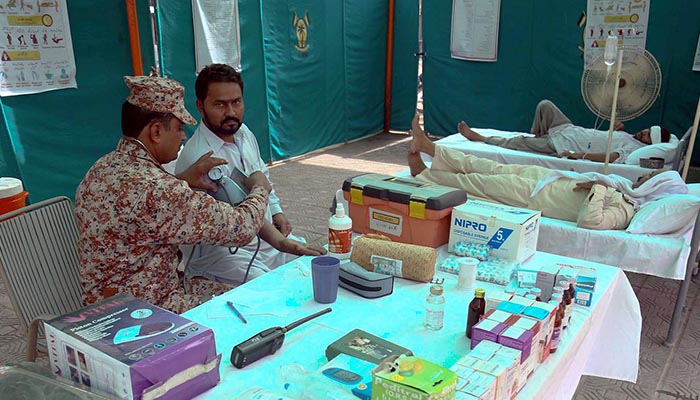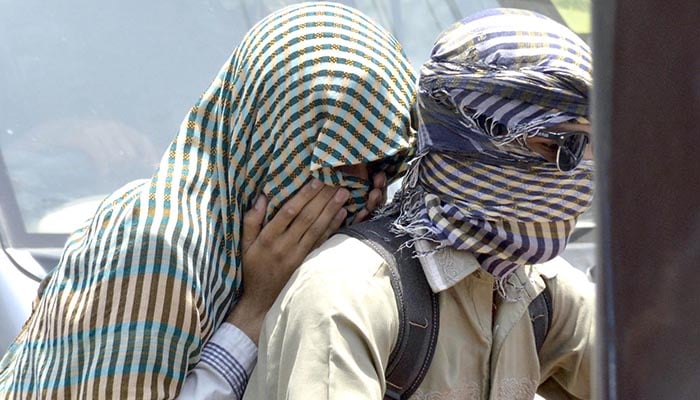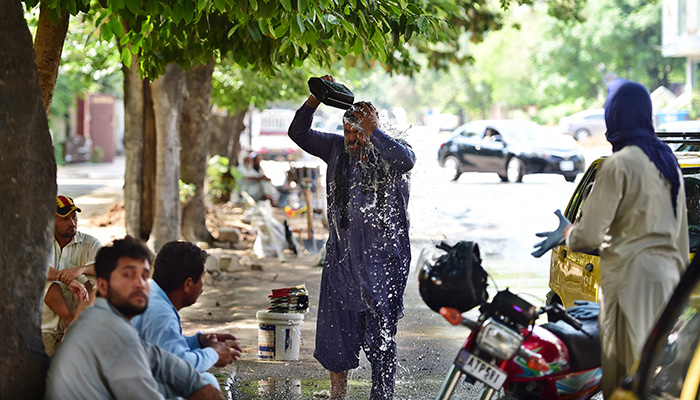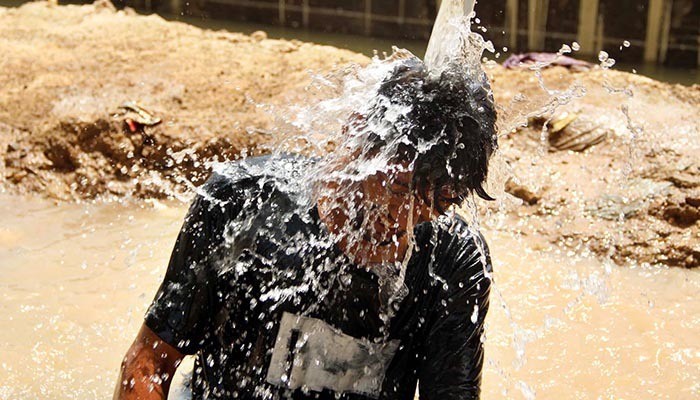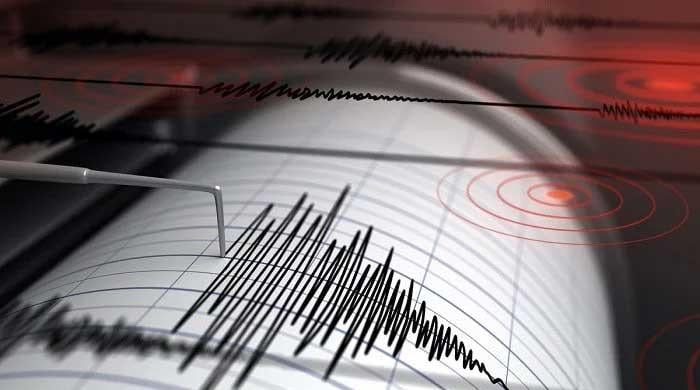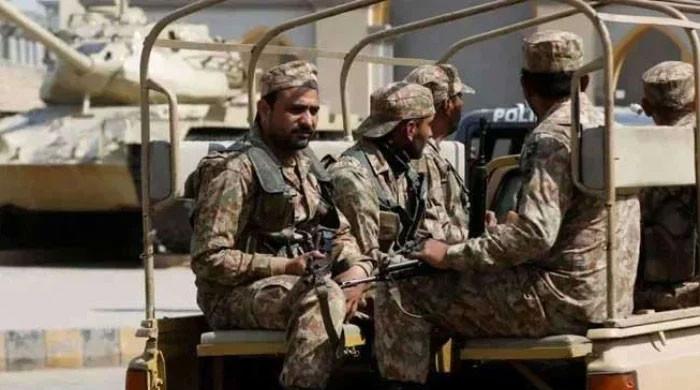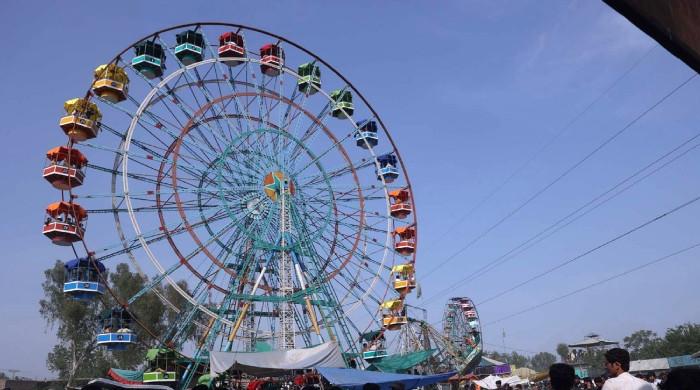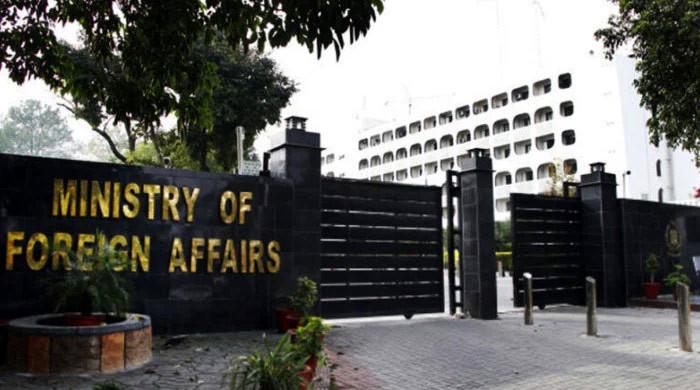Hottest day recorded in Karachi as country sizzles
Heatwave engulfs Karachi as mercury soars to 45°C
May 30, 2018
KARACHI: The country continued to sizzle in the heat on Wednesday, with its largest city recording the hottest day of the year.
The mercury shot up to 45°C in Karachi as another bout of heatwave continued to prevail in the metropolis.
Similar scorching temperatures were recorded elsewhere in Sindh earlier today: Larkana 46°C, Dadu 45°C and Sukkur 44°C.
According to the Pakistan Meteorological (Met) Department, mainly hot and dry weather is expected to prevail in most cities including Lahore, Faisalabad, Multan, Hyderabad, Sukkur, Larkana, DI Khan, Sibbi, and Makran divisions well into the first week of June.
Director-General Met Dr Ghulam Rasool told Geo News earlier that the current temperatures are higher than average, and that they are predicted to prevail through the first week of June.
He said there is no chance of rain at the moment, but the rain system is expected to disperse the heat from mid-June onwards.
"The demand for water would increase due to hot weather, but the beginning of monsoon around mid-June would decrease drought-like conditions," he said.
The official added that Mangla and Tarbela dams currently have a dead water-level.
The hottest temperatures on Tuesday were recorded in Mohenjo Daro 50°C, followed by 49°C in Shaheed Benazirabad, Larkana, Dadu, Jacobabad, Lasbella, Sibbi, and Bahawalnagar.
Karachi on heatwave alert
Karachi is braving its fourth heatwave of the year, with the maximum temperature recorded at 45°C today - the highest in the ongoing year.
Given the current weather conditions, the Karachi Metropolitan Corporation (KMC) has put all KMC-run hospitals on standby for heatstroke emergencies during May 29 to May 31.
The Met Office has warned the heatwave of moderate/severe intensity would last until Thursday, as the sea breeze remains cut-off and wind from northwest to north dominates during this period.
The city faced an extended heatwave earlier this month as well, when the mercury routinely touched 44°C for four to five days. The scorching weather forced the Board of Intermediate Education Karachi to postpone the examinations last week.
The board has changed the timings of examinations from May 29 to June 13 owing to the heatwave. Exams for Arts Group (Regular and Private) will now start at 8:30am.
Beat the heat, prevent heat stroke
Heat stroke results from prolonged exposure to high temperatures -- usually in combination with dehydration -- which leads to failure of the body's temperature control system.
If you or someone you know faces any of these symptoms, take immediate action to prevent complications.
- High temperature but without sweating
- Throbbing headache
- Dizziness and light-headedness
- Lack of sweating despite the heat
- Red, hot, and dry skin
- Muscle weakness or cramps
- Nausea and vomiting
- Rapid heartbeat, which may be either strong or weak
- Rapid, shallow breathing
- Behavioural changes such as confusion, disorientation, or staggering
- Seizures
- Unconsciousness
Here's how to beat the heat and prevent a heat stroke:
Stay covered
Try to stay indoors, and if you need to be outside don’t spend extended amounts of time without shade. Keep your skin covered against the sun.
Wear light clothes
Wear linen, cotton, silk, or other breathable fabrics. Keep your clothing loose and breezy, so you don't feel suffocated in the humid heat.
Find shade
Look for a shade, find a tree.
Stay hydrated
Drinking more water is recommended.
Power outages continue
Power outages continued to plunge large areas of Karachi and Hyderabad into darkness during both sehri and iftar.
Multiple areas in the city were in the dark Tuesday night as residents protested against load-shedding during sehri hours by burning tyres. The affected neighbourhoods included C-1 area, Gulshan –e Iqbal block 9 and 13 in Karachi.
Residents of Latifabad No 9, 11 and Old Wahdat Colony in Hyderabad also took to the streets in protest.
K-Electric, the metropolis' sole supplier of electricity, defended the outages saying that the impression that there was unscheduled or extra load-shedding, is wrong.
